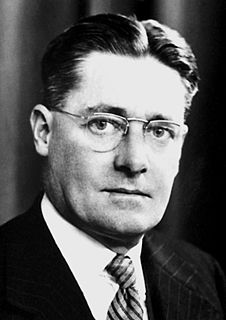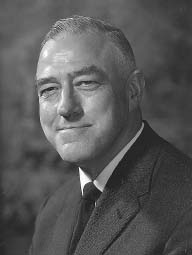Related Research Articles

Sir Harold Walter Kroto, known as Harry Kroto, was an English chemist. He shared the 1996 Nobel Prize in Chemistry with Robert Curl and Richard Smalley for their discovery of fullerenes. He was the recipient of many other honors and awards.

Howard Walter Florey, Baron Florey was an Australian pharmacologist and pathologist who shared the Nobel Prize in Physiology or Medicine in 1945 with Sir Ernst Chain and Sir Alexander Fleming for his role in the development of penicillin.

The University of Sheffield is a public research university in Sheffield, South Yorkshire, England. Its history traces back to the foundation of Sheffield Medical School in 1828, Firth College in 1879 and Sheffield Technical School in 1884. University College of Sheffield was subsequently formed by the amalgamation of the three institutions in 1897 and was granted a royal charter as University of Sheffield in 1905 by King Edward VII.

The John Innes Centre (JIC), located in Norwich, Norfolk, England, is an independent centre for research and training in plant and microbial science founded in 1910. It is a registered charity grant-aided by the Biotechnology and Biological Sciences Research Council (BBSRC), the European Research Council (ERC) and the Bill and Melinda Gates Foundation and is a member of the Norwich Research Park.

Frederick Sydney Dainton, Baron Dainton, Kt, FRS, FRSE was a British academic chemist and university administrator.
Sir Derek Harold Richard Barton was an English organic chemist and Nobel Prize laureate for 1969.

Sir Michael Francis Addison Woodruff, FRS, FRSE FRCS was an English surgeon and scientist principally remembered for his research into organ transplantation. Though born in London, Woodruff spent his youth in Australia, where he earned degrees in electrical engineering and medicine. Having completed his studies shortly after the outbreak of World War II, he joined the Australian Army Medical Corps, but was soon captured by Japanese forces and imprisoned in the Changi Prison Camp. While there, he devised an ingenious method of extracting nutrients from agricultural wastes to prevent malnutrition among his fellow POWs.
John Robert Stanley Fincham FRS FRSE was a noted British geneticist who made important contributions to biochemical genetics and microbial genetics.
Sir Kenneth Mather CBE FRS was a British geneticist and botanist. He was elected a Fellow of the Royal Society in 1949, and won its Darwin Medal in 1964. He was the second vice chancellor of the University of Southampton, serving from 1965 to 1971. He was instrumental in persuading the University Grants Committee to establish a new Medical School at the university.
John Watson Funder is an Australian medical researcher.
The School of Biological Sciences is a School within the Faculty Biology, Medicine and Health at The University of Manchester. Biology at University of Manchester and its precursor institutions has gone through a number of reorganizations, the latest of which was the change from a Faculty of Life Sciences to the current School.
Harold Norman Moldenke, also known as simply Moldenke (1909–1996) was an American botanist/taxonomist. His expertise is largely in the study of Verbenaceae, Avicenniaceae, Stilbaceae, Dicrastylidaceae, Symphoremaceae, Nyctanthaceae and Eriocaulaceae.
Christopher John Lamb was a Professor of Plant Biology at the University of East Anglia and director of the John Innes Centre.
Victor Dubowitz, FRCP, Hon FRCPCH is a British neurologist and professor emeritus at Imperial College London. He is principally known along with his wife Lilly Dubowitz for developing two clinical tests, the Dubowitz Score to estimate gestational age and the other for the systematic neurological examination of the newborn.

James Alexander McWha is a botanist whose professional career was devoted to teaching, research and educational administration in New Zealand, Northern Ireland and Australia. He retired as Vice-Chancellor and President of the University of Adelaide on 30 June 2012. In October 2013 he was appointed as Vice Chancellor of the newly created University of Rwanda. He retired from the University of Rwanda in October 2015.

Aditya Narayan Purohit is an Indian scientist and professor who has mainly worked on ecophysiology of tree species and physiology of high altitude medicinal plants. He was born in village Kimni, Dist. Chamoli. He has served as the Vice-Chancellor of Hemwati Nandan Bahuguna Garhwal University and as director of the university's High Altitude Plant Physiology Research Center. He was also the Director of Govind Ballabh Pant Institute of Himalayan Environment and Development from 1990 to 1995. Purohit was awarded Padma Shri, the fourth highest civilian award of India, by the President of India in 1997 for his valuable scientific contribution in Indian mountains.
John Webster was an internationally renowned mycologist, head of biological sciences at the University of Exeter in England, and twice president of the British Mycological Society. He is recognised for determining the physiological mechanism underpinning fungal spore release, though is probably best known by students of mycology for his influential textbook, Introduction to Fungi.

Arnold Edwin Victor Richardson MA, BSc., was an Australian scientist noted for dry farming research, who became founding director of Waite Research Institute then director of the organisation now known as CSIRO.

Raymond Louis Specht was an Australian plant ecologist, conservationist and academic, who participated in the Arnhem Land Scientific Expedition of 1948.
Charles Stewart Parker was head of the Department of Botany at Howard University. He carried out the first systematic study of American species of the fungal genus Hypholoma and also collected over 2000 plant specimens, including several new species.
References
- 1 2 Szirtes, George (25 June 1996). "Obituary: Professor Harold Woolhouse" . The Independent. Archived from the original on 9 May 2022. Retrieved 16 January 2015.
- ↑ "Harold W Woolhouse". John Innes Centre. Retrieved 16 January 2015.